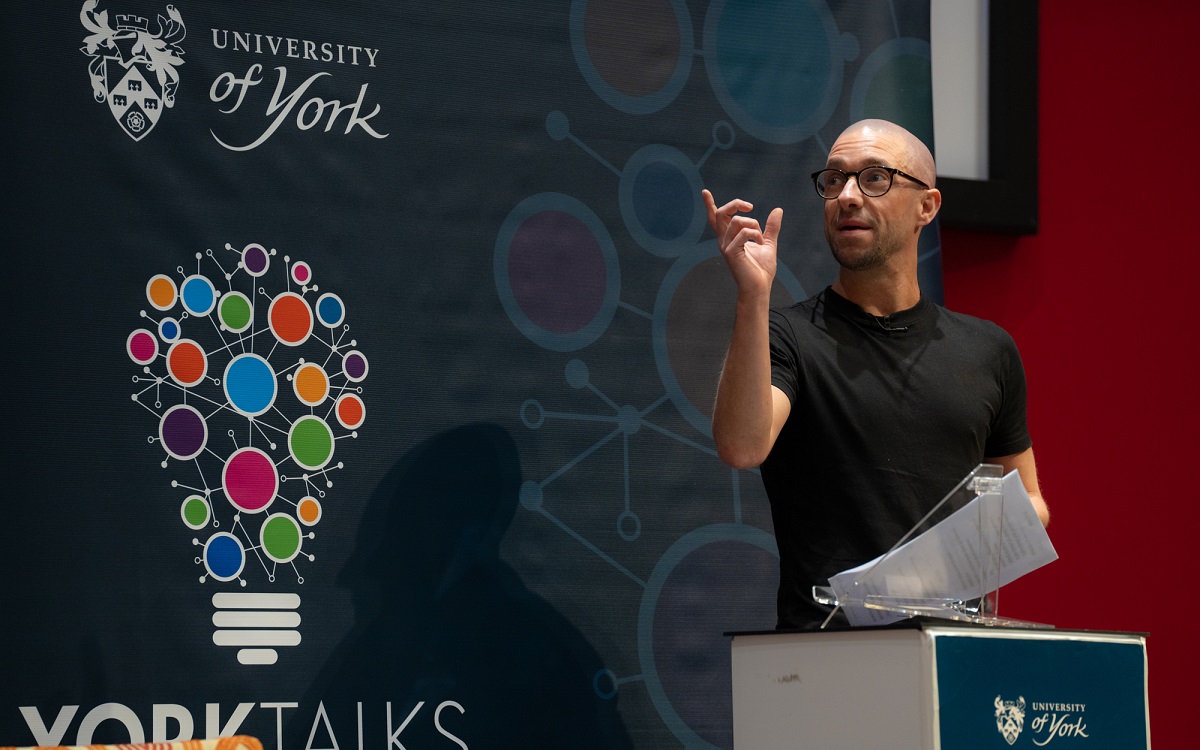Dr Chris Devany (Vulnerability & Policing Futures Research Centre) spoke about how police respond to ‘victims’ and ‘offenders’ across county lines drug networks at an event today.
10 January 2024
The talk was part of the University of York’s annual YorkTalks event, which included sixteen short talks about varied topics, such as public services, artificial intelligence and the future of the nation’s pubs.
Dr Devany shared updates on a Centre research project that is exploring the policing of ‘county lines’ drug dealing across Britain. County Lines networks have expanded rapidly across the UK to become a significant drug market model for the supply of heroin and crack cocaine. This mostly consists of ‘drug dealers’ from urban areas travelling to smaller towns to sell Class A drugs.
Dr Devany revealed that police and public services often struggle to navigate the blurred lines between ‘victims’ and ‘offenders’ in County Lines. This is partly because vulnerable people are often recruited or pressurised into carrying and selling drugs, meaning the levels of culpability are hazy.
Age can be a key factor as to whether someone is seen as vulnerable and is significant in determining whether they are a ‘victim’ or ‘offender’ in County Lines. At 17 a person is still formally a ‘child’ and more easily understood as a victim. At 18 and one day they are an adult in legal terms.
Dr Devany also revealed that when an exploited individual begins to exploit others, this can often be interpreted as a transition point away from ‘victimhood’ in the eyes of the police. Relatedly, he also said that some vulnerable people who are engaged in County Lines networks will be prosecuted because they do not act like, nor comply with, an image of the ‘ideal victim’.
“The County Lines phenomenon presents a major challenge for the police and other agencies”, said Dr Devany.
“Our research is the first national study on this issue and we hope to use our findings and relationships with national partners to find better ways of protecting some of the most vulnerable people in our society from exploitation.”
From the Centre community
Other speakers for YorkTalks2024 included Centre Research Affiliate Professor Joe Tomlinson and Early Career Researcher Development Fund award holder Dr Nadia Jessop.
Professor Tomlinson, who is leading a Centre-funded project on the state’s legal obligations to safeguard vulnerable groups, spoke about the importance of making frontline public services administratively fair. He argued that this could restore public trust and make government more effective.
Dr Nadia Jessop talked about international students’ experiences of inclusion in the UK and what it means for their wellbeing and educational performance.
Links
Image
Photo from the University of York

